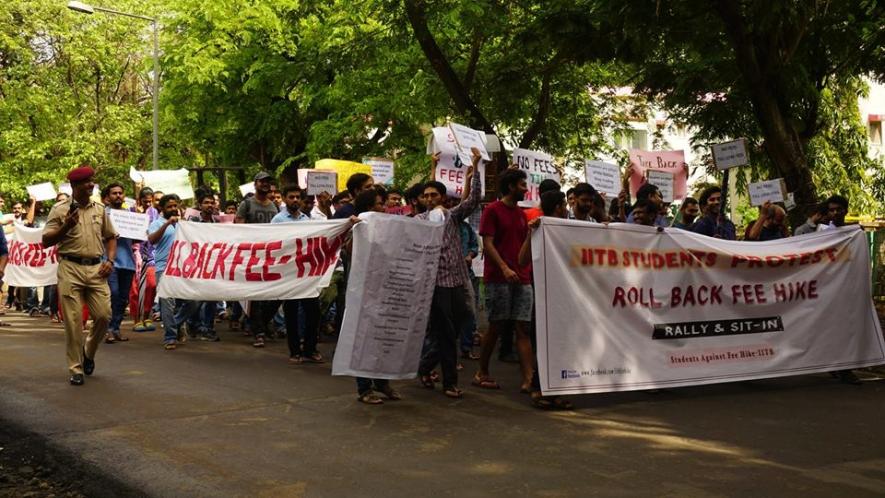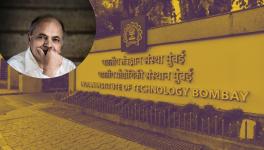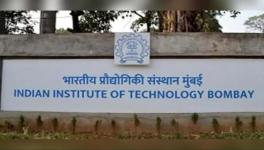IIT Bombay Cites Govt Rules to Justify Fee Hike; Refuses to Roll Back

After two months of student protests at the Indian Institute of Technology-Bombay (IIT-B) against massive fee hike, students are still awaiting a “reduction” in the hike as promised by the director, even as a rollback was ruled out by the institute citing government “mandate”. Meanwhile, the deadline for fee payment passed on July 11.
The hike—ranging from 30% to 300% per semester in different components of the non-tuition fees for all undergraduate, postgraduate and research students—was announced in May.
On July 10, student representatives met IIT-B Director Devang Khakhar and other officials as part of a committee formed to “finalise a proposal for reduction of fee hike”.
During the three-hour meeting, a white paper released by the institute on the hike in non-tuition fees was discussed. The institute had also emailed the white paper to students on July 7
In the paper, the administration refers to the General Financial Rules 2017 laid down by the Government of India as a mandate to increase the non-tuition fees (for expenses on hostel, gymkhana, mess, medical facilities, etc.).
The components of the non-tuition fees are being considered as “user charges”— as the director had earlier called them, sparking furore among students.
The GFR has clauses — also quoted by the institute — which say that all “autonomous” organisations receiving government funding “should be encouraged to maximise generation of internal resources and eventually attain self-sufficiency”, and that “user charges [must] recover the current cost of providing services with reasonable return on capital investment.”
The white paper also says that the “MHRD draft MoU with IITs states that apart from MHRD allocation, the Institutes will raise funds from (i) User Charges in the form of Fees, (ii) User charges other than fees.”
During the July 10 meeting, it was decided that student representatives would submit a concrete proposal about the expected reduction in the hike. After this, another meeting of the committee would take place to finalise the matter and the decision will then be referred to the Board of Governors, which meets in August.
The reduced fees would be implemented retrospectively, and would be refunded or adjusted in the next semester fees, as the deadline for this semester has already passed.
Students are also working on a proposal about how, in the future, students can be involved in reviewing plans for changes in the fee structure.
The IIT-B director had agreed to negotiations—to decide which components of the fees could be reduced—after weeks of organising, protesting and submitting representations to the administration by the student collective Students Against Fee Hike, IIT-B .
On June 22, after a 10-hour protest march and sit-in around the main administrative building on campus, the director had addressed students, promising to release a white paper explaining the hike and to hold a meeting with student representatives, both elected and from the collective.
But as the administration delayed in responding and the fee payment deadline loomed large, students went on a relay hunger strike on July 3.
However, the hunger strike was suspended on July 4, after an email from the director, wherein he announced the dates for the white paper as well as the meeting.
The Indian Institutes of Technology—the premier institutions of higher technical education and research in the country—are autonomous public-sector institutes, funded by the government.
But over the past few years, there has been an increasing push by the government to turn them into “self-financing” institutions. This new hike at IIT-B, announced in May, comes a year after the undergraduate tuition fees was more than doubled—from Rs 90,000 per annum to Rs 2 lakh per annum—across the 23 IITs in the country.
Disclaimer: The views expressed here are the author's personal views, and do not necessarily represent the views of Newsclick.
Get the latest reports & analysis with people's perspective on Protests, movements & deep analytical videos, discussions of the current affairs in your Telegram app. Subscribe to NewsClick's Telegram channel & get Real-Time updates on stories, as they get published on our website.
























